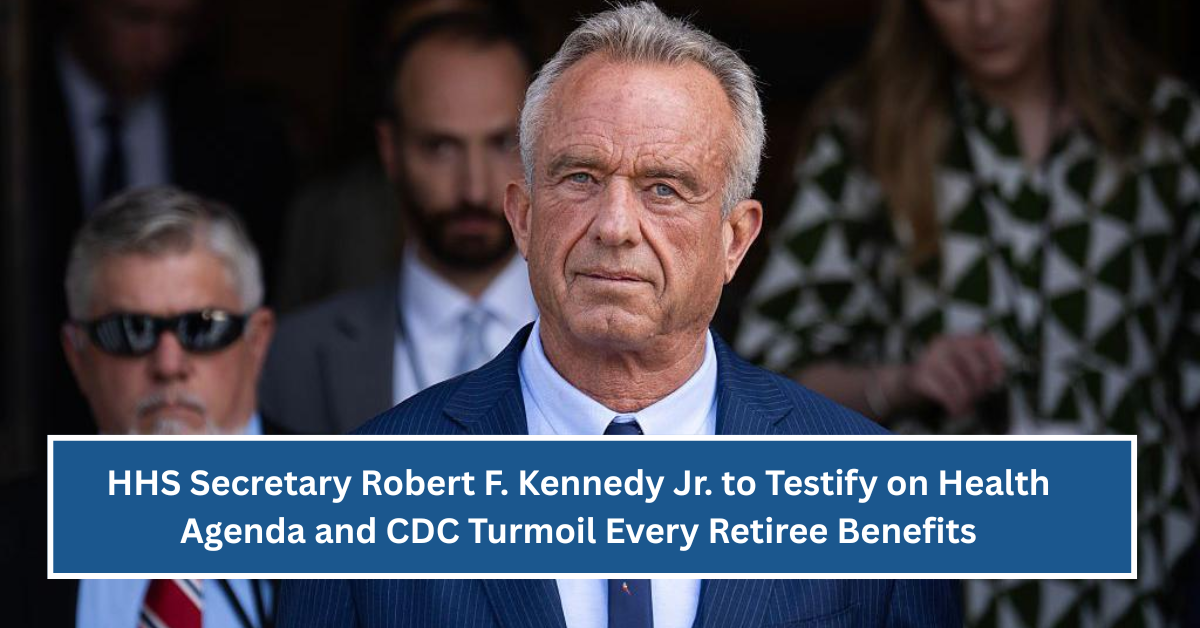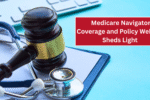The United States Department of Health and Human Services (HHS) is currently under intense scrutiny as Secretary Robert F. Kennedy Jr. prepares to testify on the evolving health agenda and ongoing issues within the Centers for Disease Control and Prevention (CDC). This hearing is critical as it promises to shed light on the direction of public health policy and shed clarity on the controversies that have shaken one of the nation’s most trusted health agencies.
With healthcare being a pivotal concern for millions of Americans, especially younger generations who face unique health challenges, Kennedy’s testimony could reveal significant policy shifts. The implications of this hearing stretch beyond immediate public health concerns and will likely influence trust, transparency, and the future handling of health crises nationwide.
Overview of the U.S. Health Agenda Under Robert F. Kennedy Jr.
Robert F. Kennedy Jr., known for his controversial views on public health, especially regarding vaccines, has outlined a health agenda that aims to reform federal health policies. This agenda emphasizes transparency, safety in medical interventions, and a reconsideration of current vaccination protocols. Kennedy stresses the importance of balancing public health safety with individual freedoms and informed consent.
His approach also focuses on cutting through bureaucratic red tape and fostering innovation within healthcare systems. It reflects a growing demand from many Americans, particularly millennials and Gen Z, for a healthcare framework that is more responsive, transparent, and patient-centric. Kennedy’s views, however, have sparked debate among public health experts and policymakers.
What Has Caused the CDC Turmoil?
The CDC, a pillar of American public health, has faced unprecedented challenges in recent years, including criticism of its management of COVID-19 guidelines, conflicting messaging, and perceived internal conflicts. Some have accused the agency of losing public trust amid mixed messages about pandemic policies, vaccine recommendations, and data transparency.
Further criticism has arisen regarding the handling of health data and controversies over mandates. Staff morale has reportedly declined, and calls for greater accountability have intensified. This turmoil highlights the complex balance between science, politics, and public communication in a fast-changing health landscape.
Key Issues Robert F. Kennedy Jr. Will Address in His Testimony
In his upcoming testimony, Kennedy is expected to focus on several critical issues, including vaccine safety concerns, the need for independent scientific review, and reforms to improve transparency in public health decision-making. He is likely to push for stronger protections against what he perceives as undue influence from pharmaceutical companies.
Additionally, Kennedy will probably discuss strategies to rebuild public trust in federal health agencies and improve crisis response mechanisms. These points are especially relevant given the evolving threats of new infectious diseases and the need for resilient healthcare infrastructures.
The Impact on Public Health Policy and Legislation
The testimony could have far-reaching consequences for public health policy. If Kennedy’s proposals gain traction, they may lead to legislative changes that redefine vaccine regulations and federal oversight of health agencies. This could alter how health emergencies are managed and how data-driven decisions are communicated to the public.
Legislators and health officials will be watching closely as this hearing may also influence upcoming funding priorities, research focus areas, and the regulatory landscape. The younger population, who demand innovation and accountability in health matters, could find their voices amplified if reforms take hold.
How the CDC Is Responding to Internal and External Challenges
The CDC has announced initiatives aimed at improving transparency, rebuilding trust, and ensuring effective communication. These include increasing community engagement, strengthening collaborations with state health departments, and enhancing data accessibility for the public.
Internally, leadership is focused on addressing staff concerns, promoting scientific integrity, and updating operational protocols to better prepare for future health emergencies. These steps are part of a broader effort to stabilize the agency and regain its reputation as the nation’s foremost health authority.
Statistical Snapshot: Public Trust in Health Institutions
| Aspect | Percentage of Americans Expressing Trust |
|---|---|
| Trust in CDC for Health Information | Around 65% |
| Confidence in Vaccine Safety | About 70% |
| Trust in Federal Health Policy Transparency | Approximately 55% |
| Belief in Fair Healthcare Access | Near 60% |
This data reflects ongoing challenges but also opportunities for improvement in public health communication and governance. Younger Americans particularly value clear, truthful messaging and have shown a willingness to engage in health advocacy and digital health innovation.
The Role of Social Media and Public Opinion in Shaping the Health Agenda
Social media platforms play a significant role in how public health messages are received, especially by younger audiences. They serve as arenas for debate, education, and sometimes misinformation. Kennedy’s testimony and the subsequent discussions are expected to gain substantial attention online, influencing public opinion.
Health officials must navigate this landscape by promoting accurate information and engaging meaningfully with online communities. The dialogue between agencies like the CDC and the public on social platforms could shape the future of health literacy and policy acceptance among younger generations.
Potential Long-Term Effects on the Healthcare System
If Kennedy’s testimony leads to concrete reforms, we might witness a shift toward more personalized and participatory healthcare models. Greater transparency and enhanced safety protocols could improve patient trust and outcomes. Moreover, the healthcare system may become more adaptable to emerging health threats, leveraging technology and data better.
Reforms might also inspire new legislative frameworks that protect consumer rights while encouraging scientific innovation. This balance could encourage healthier lifestyles and improve preventive care approaches among younger Americans, who face unique challenges such as mental health concerns and chronic disease risk.
Preparing For What’s Next: What Citizens Can Do
As the nation watches this landmark testimony, citizens can play an active role by staying informed, critically assessing health information, and engaging with policymakers. Advocacy for transparent health communication and evidence-based policies is vital for building a resilient public health system.
Young adults, in particular, are encouraged to utilize digital tools to spread knowledge, participate in community health initiatives, and demand accountability from health institutions. Active citizenship is key to shaping a future where health agencies are trusted and effective for all Americans.
Conclusion: A Defining Moment for American Public Health
The upcoming testimony by HHS Secretary Robert F. Kennedy Jr. is more than just a policy hearing—it is a defining moment for the future of American public health. How the nation addresses the challenges at the CDC and embraces new health agendas will influence public trust and health outcomes for years to come.
For younger generations and all Americans, this process offers an opportunity to reshape the relationship between federal health agencies and the public. Transparency, scientific integrity, and authentic engagement must guide the path forward to ensure a healthier and more informed society.




